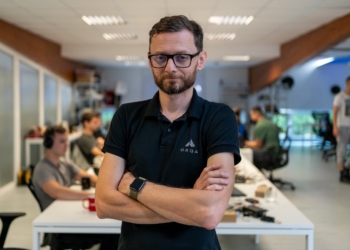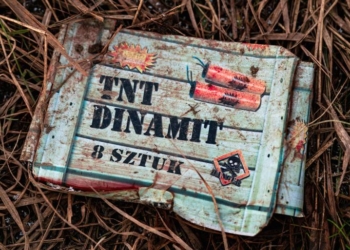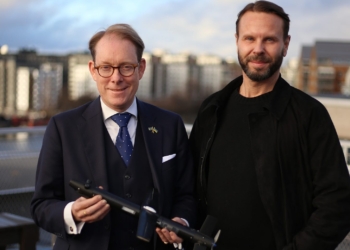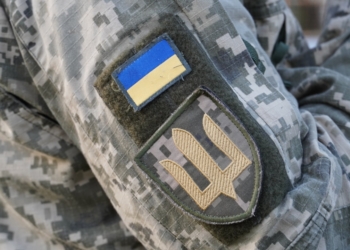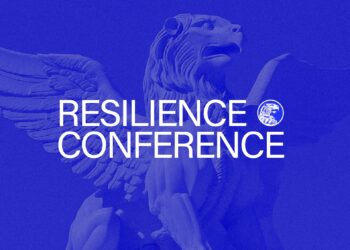The fireside chat, “Defence Production is the New Deterrence” featured LtGen (ret.), Dr. Dennis Gyllenspore, Chairperson, NATO DIANA; Major General Edward Vaughan, Executive Director, Joint Rapid Acquisition Cell. It was moderated by Colonel Glenn McCartan USMC, DIU Representative to U.S. European Command, Defense Innovation Unit. Excerpts from the full panel, which you can watch on our Youtube Channel, are below.
The Future of Defence Tech Manufacturing & Innovation, was presented by the US Defense Innovation Unit and Munich Security Conference Tech & Innovation Thursday, sponsored by Boston Consulting Group, and powered by Resilience Media.
Risk and Deterrence
Major General Edward Vaughan:
If we don’t invest in startups that are doing the things we need to be deterrent or to be victorious in war … who absorbs the risk of that lack of investment of that non decision? …On behalf of the population, the government absorbs that risk. So when there’s a lack of decision, lack of [venture capital] investment, they shift the risk to the government, but the risk becomes risk of attack, strategic risk, kinetic risk, however you want to characterise it. A government has the ability to reduce its strategic risk by reducing barriers to investment.
If on the other hand, a venture capital firm says we’re going to invest in this company, it’s very low TRL [Technology Readiness Level], they don’t have any sales yet by our metrics, it’s really a bad risk decision on our part, but we’re going to do it anyway. What just happened? That investment firm just took risk from the government and said we’re going to absorb some of that risk. We’re going to take risk from the population and the government. The risk of attack, we’re going to take that on and invest in deterring that attack.
LtGen (ret.), Dr. Dennis Gyllenspore:
Here’s a lesson for us from the government side, talking about regulation. We have a risk averse culture when it comes to procurement with the mindset that we will have all the requirements specified before we can enter into a contractual relationship with the company. But the world moves faster and technology moves faster. So we have to accept that some of the procurements that we are doing will not be successful. The gadget won’t work as intended, but that’s okay. Absence of success is not failure.
NATO and Defence Industry Evolution
Dr. Gyllenspore: I would argue that NATO as an alliance is the ultimate entity for scaling in defence. Remembering that the Article 5 stipulates that if one country’s being attacked, the other 31 will step in and help out. And that’s scalability at its very essence. … When it comes to the government side, NATO is doing quite a lot and has done so for many years in terms of standardisation, interoperability, multilateral programs for procurement to allow nations to procure at scale and also efficiently. And that will obviously continue. We have a procurement agency that could also help out on the procurement side. Having said that, there’s a lot more to be done.
DIANA and Department of Defense
General Vaughan on three things that have worked for the DoD with regard to manufacturing and scaling:
Multi-year procurement. Congress has authorised the DoD to do multi-year procurements that provide enough certainty to get over that valley of death of runway funding. The next one’s called ‘facilitisation’. What it means is that the government invests in your new facilities so that you can improve your infrastructure to help increase and scale production capacity to the next level. And the third one is investing in long lead time supply chain items. So if we know we’re going to ask you to do a million of these or 10,000 of these next year and we know that these are your [supply chain] bottlenecks, we can invest early in those [items] and have them ready for you.
Dr. Gyllenspore:
Ecosystems of innovation. What I see happening over the next five years is that we will be able to build a strong fabric of innovation, connecting what is now a couple of islands and making sure that there is connectivity so that we can be more agile. Because if we have a fundamental challenge now or in the future that we need to address, we need to come together much quicker. I mean, just to take an example, now we are struggling in alliance with subsea or undersea infrastructure, critical infrastructure that has been sabotaged and we need to find solutions. And that requires thinking input from various parts of the innovation ecosystem.
Build a much stronger culture of innovation. I think in many ways countries have a culture of innovation, but not in the defence area. And to bridge that gap now is a challenge and we need to be reaching out much more from the defence community to meet and engage with innovators. I think that DIANA is one of those vehicles that will help us.
Deliver capabilities. There are so many opportunities that stem from new technology and bright creative minds, sometimes overconfident, but that we need that.



